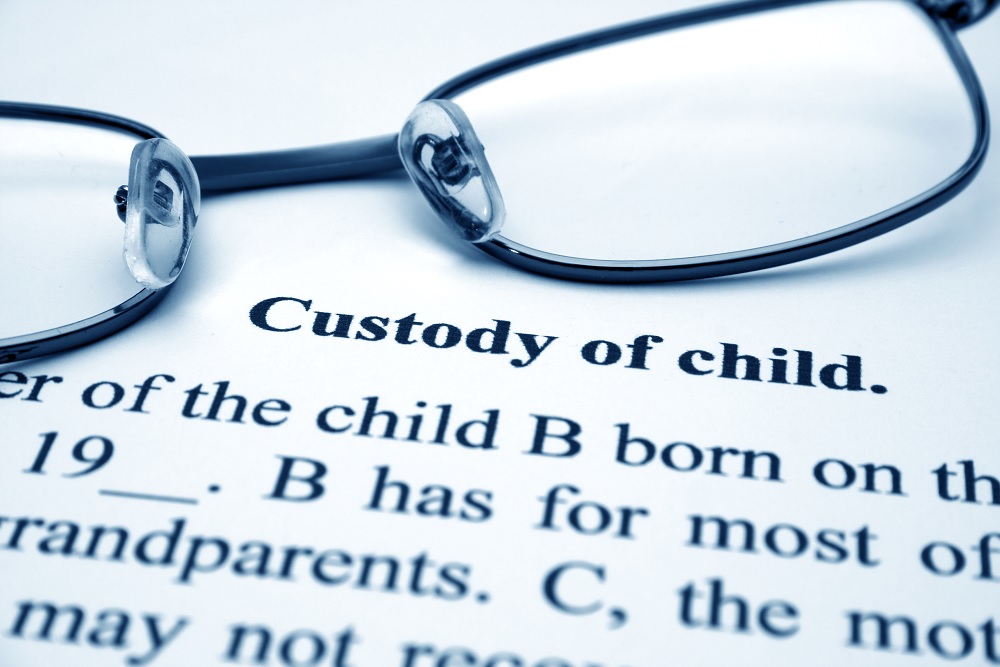Discover Tips For Coping With Parents Divorce For Children
Divorce comes with many changes and challenges. From the initial dissolution of the relationship to questions of who will keep the house or who will maintain primary custody of the children, not to mention the financial impact on both parties. One of the largest concerns that couples that are going through a divorce have is how the situation will impact their children.
It can be difficult for children to cope with such major changes in their lives, and many parents find themselves struggling to help their children adjust to the “new normal”. In the U.S. almost 800,000 divorces occur each year, leaving roughly one million children to cope with the impact of parental divorce.
Ensure They Feel Loved
Whether one parent is no longer in the picture, both are striving to raise the child with equal effort, or custody is still being established and things are up in the air, the most important aspect of divorce is letting your child know that they are still loved and that will not change.
Divorce can have a lifelong effect on children, and it’s important that they know you love them no matter what changes occur with your family dynamic. It is especially important for children to receive reassurance when one parent is no longer residing in the household or they see less of one parent than they did prior to the divorce.
If one parent is not around or fails to follow through with plans, ensure your child has a backup option or arrangement. Let them know that a parent’s mistake or disagreement is not a reflection on how much they are loved.
Explain What Is Happening
Children can be incredibly resilient; however, there is still a lot of confusion and questions that stem from divorce, even from adults. Your children will likely be confused about the situation and have questions. Don’t be afraid to answer them honestly, without malice or judgement.
Understand that children may be on a different timeline when it comes to comprehending and accepting divorce, since as parents you have had time to go through grieving and accepting the end of your marriage for months or even years, while they are just learning about it. Provide enough information about the divorce to reduce your child’s confusion or uncertainty about why it happened and what will happen to them and the family in the future.
Make sure you children understand that the divorce is not their fault and they have done nothing to impact the decision that you have come to.
Remain Civil
It can be hard to maintain a civil relationship with a co-parent, especially amid a divorce when things are still being sorted out, custody arrangements are being established, and emotions are running strong. The best thing for children in the middle of the divorce process is establishing a modicum of stability and allowing any arguments or grievances to play out through legal counsel in the appropriate setting. Keeping your cool not only allows your children to feel comfortable, it also ensures that you have the best chances possible of faring well in the divorce proceedings.
Try to maintain as civil of a co-parenting relationship with your ex-spouse as possible–with the exception to this being if they are abusive or neglectful. In those cases, it is best to involve your legal representative to ensure the best interests of the child and to let your children know that that sort of behavior is not alright. Keep conflict away from children, since parental conflict increases the chances of children developing psychological or social problems.
Don’t subject your children to name calling or negative talk of their other parent–they should not have to deal with adult issues that are better left to a mediation session or courtroom and forcing children to choose sides or hear uncivil speed can harm your relationship with them and legal standing in matters of custody and visitation.

Don’t Put Them In The Middle
You will likely experience a variety of emotions when going through a divorce, from sadness and anger to relief. Your child will also experience emotions regarding their situation and will require reassurance. One unfortunate aspect of divorce occurs in situations where parents are engaged in a heated or contested divorce and emotions run high. In these cases, parents may resort to speaking to the other party “through” their child, awkwardly putting the child in the middle of their conflict.
Whenever possible, don’t ask your children to relay messages or ask them questions about their other parent. This can lead to children feeling caught in the middle or stuck playing messenger, even for benign questions or requests. Go through official channels for communication related to divorce proceedings, custody, and other aspects of divorce, and communicate with your child’s other parent or their attorney when you have questions or concerns.
Try to facilitate a healthy and positive relationship between your child and their other parent and encourage them to speak to and spend time with the other parent. Forbidding your child from speaking to or spending time with their other parent can both damage your own relationship and discourage a smooth transition into their new family structure. If there are any legal reasons or negative emotional or physical impact the other parent could be causing (such as abuse), that situation calls for immediate legal intervention and should be discussed with your attorney and the police.
Seek A Professional Opinion
In order to ensure that your children have a smooth transition and feel that they have someone they can talk to about the situation (apart from their parents), consider finding a therapist for them to speak to. There are therapists that specialize in divorce for children and can provide a safe space for your children to share their emotions and process them in a healthy way.
Even if you decide not to seek a therapist, it’s important to maintain a health support network, both for yourself and your children. Many people find their social network and support system shrinking after divorce, since many couples have mutual friends that tend to choose one party or the other and some have difficulty taking sides and drift away.
As a divorced parent, turn to family and friends to share your feelings and confide in, as opposed to expressing those feeling to your child. It can be difficult to keep children out of the frustration, confusion, and stress that sometimes comes from divorce but having a professional outlet for yourself or your child can help immensely. Consider turning to school, religious, community, or organizational resources and support groups so you both have a strong support system.
The Law Office Of Scott S. Ives Can Help
If you or a loved one is contemplating or going through a divorce, it can have a great impact on your family, especially children. It can be difficult to make sound decisions amid such an emotional time of upheaval, which is why it’s so important to find the right attorney to guide you and your family through the divorce process.
The Law Office of Scott S. Ives has over 30 years of experience practicing family law in northern Virginia. We have the knowledge, experience, and understanding to help you and your family and make a tough situation a bit easier. Do what is best for you and your children, contact the Law Office of Scott S. Ives today to get a free legal consultation.


